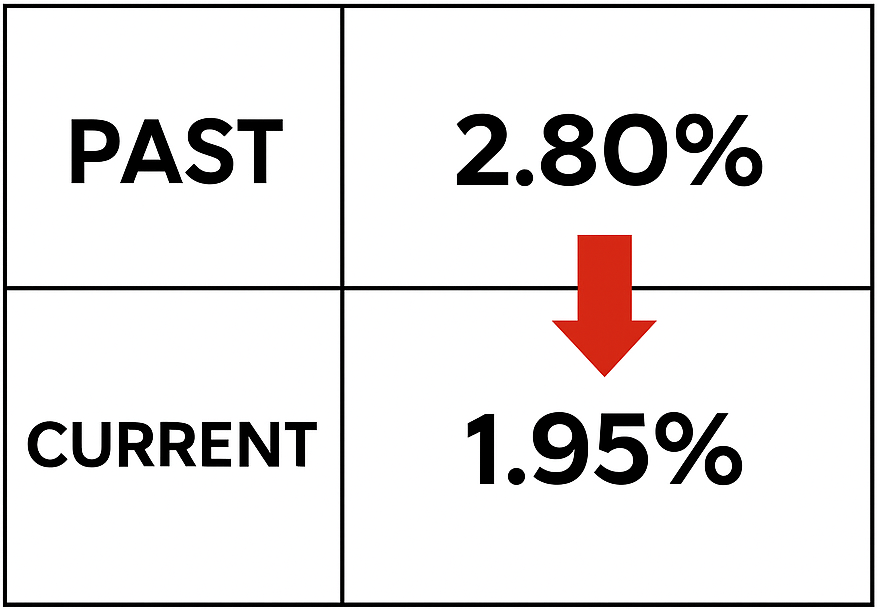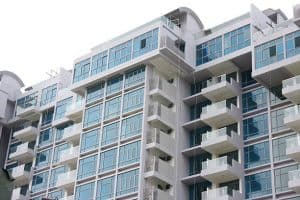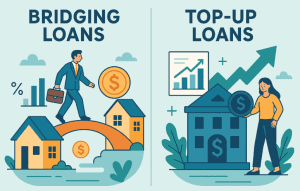Thinking of buying your first home in Singapore? Before you start house hunting, getting an In-Principle Approval (IPA) from the bank is a must. An IPA tells you how much you can borrow—so you can budget wisely and avoid surprises.
With mortgage interest rates in Singapore always changing, having an IPA in hand gives you more confidence when making offers. It also prevents you from losing your OTP fee if your loan falls through.
In this guide, I’ll walk you through everything you need to know about IPAs in Singapore—so you’re ready to secure the best deal on your home loan in Singapore.
Quick FAQ Summary

What is an IPA in Singapore?
An In-Principle Approval (IPA) is a bank’s early assessment of how much you can borrow for a home loan in Singapore. It’s not a final approval, but it helps you know your budget and plan your property search confidently
Is an IPA mandatory to buy property in Singapore?
No, it’s not required—but it’s highly recommended. Getting an IPA shows sellers you’re serious and can help you avoid losing your OTP fee if your home loan falls through.
How long is an IPA valid?
Usually, an IPA is valid for 30 to 90 days, depending on the bank. It’s a good idea to confirm with your lender so you don’t miss the window to secure your dream home.
Can I extend my IPA?
Yes! Many banks in Singapore let you extend your IPA, but you’ll likely need to update your financial documents for reassessment.
Does an IPA guarantee final loan approval?
No, it doesn’t. An IPA is a preliminary estimate. Final approval still depends on factors like the property’s valuation and any changes to your financial situation.
What is an In-Principle Approval (IPA)?

In Singapore’s fast-paced property market, an IPA is your green light to start house hunting. It’s the bank’s way of saying, “Here’s how much you can borrow,” so you can shop confidently.
With home loan rates in Singapore always on the move, knowing your budget is key to snagging the best deal.
Definition and Purpose of IPA

An IPA (also called Approval-in-Principle) is a non-binding estimate from a bank that shows how much you can potentially borrow for a mortgage loan in Singapore. It’s like a dress rehearsal before the real deal — no strings attached but super helpful for planning.
Quick benefits of getting an IPA:
- Know your maximum loan amount before shopping
- Strengthen your negotiation power with sellers
- Avoid surprises like losing your OTP fee if your loan doesn’t get approved
Pro tip: Always compare offers from different banks to get the most competitive mortgage interest rate Singapore has to offer. Need help with that? Check out our home loan rates in Singapore guide for the latest insights.
Difference Between IPA and Approval-in-Principle (AIP)

Here’s the fun part: IPA and AIP are just two names for the same thing! Different banks call it differently, but both mean you’ve been pre-evaluated for a loan amount.
Key points:
- IPA = AIP (same process, different name)
- Non-binding, so you’re not locked in
- Gives you a budget to shop with confidence
Typical Validity Period and Renewal Process
Most IPAs in Singapore are valid for 30 to 90 days — plenty of time to house-hunt. But if you need more time, most banks will let you extend it with updated financials like payslips or CPF contributions.
IPA Validity and Renewal Options by Singapore Banks
| IPA Validity Period | Renewal Options |
|---|---|
| 30–90 days | Most banks allow extensions with updated documents |
Tip: Don’t let your IPA expire! Renew it on time to stay ahead of the game and secure the best mortgage rates Singapore banks offer.
Need help comparing banks’ IPA packages? Our mortgage broker Singapore can guide you through the process.
Why an IPA Matters for Home Buyers

Getting an In-Principle Approval (IPA) in Singapore isn’t just a box to tick — it’s your secret weapon in a competitive property market. With mortgage rates Singapore constantly changing, knowing how much you can borrow keeps you ahead of the game.
Setting a Realistic Budget for Your Property Search

An IPA shows you exactly how much a bank is willing to lend based on your financial profile. That means no more guessing or heartbreak when you fall in love with a home that’s out of reach.
Key benefits of setting a realistic budget:
- Focus on homes within your price range
- Save time (and avoid disappointment)
- Get ready to compare home loan rates in Singapore confidently
Looking for help finding the best deal? Check out our home loan rates in Singapore guide to compare rates from different banks.
Avoiding Financial Pitfalls with OTP Fees

Here’s the thing: if you sign an Option to Purchase (OTP) without an IPA, you risk losing your option fee if your loan application fails.
Avoid this costly mistake by:
- Getting an IPA before signing any documents
- Confirming your eligibility with the bank
- Checking that your IPA is still valid before committing
Our mortgage broker Singapore team can help you navigate the IPA process so you can buy with confidence.
Strengthening Negotiation Power with Sellers

Having an IPA in hand shows sellers that you’re a serious buyer. It’s like walking into a showroom with cash in hand — you’re ready to move.
How an IPA boosts your negotiation power:
- Sellers are more willing to negotiate
- You can secure the best mortgage interest rates Singapore offers
- You avoid last-minute financing hiccups
Expert tip: In my experience, sellers are more likely to accept your offer if you’ve got financing sorted. It shows you’re prepared and committed.
Eligibility Criteria for IPA Applications

Before you rush into getting an IPA, it’s good to know whether you’re eligible. Banks in Singapore look at a few key factors to determine if you’re a good fit for a mortgage loan. Here’s what you should know before applying.
Income and Employment Stability Requirements

Banks want to make sure you can handle your monthly payments. That means they’ll check your:
- Monthly income (usually a minimum of S$2,500, but this varies by bank)
- Length of employment (some banks prefer at least 6–12 months with the same employer)
- Bonus or commission income (if you’re in sales or freelance, be prepared with proof!)
Expert tip: If your income is variable or commission-based, consider getting advice from a mortgage broker Singapore to understand how banks assess your eligibility.
Credit History and Debt Considerations

Your credit score plays a huge role in getting an IPA. Banks check your:
- Credit Bureau Singapore (CBS) report
- Existing debts (like car loans, personal loans, credit cards)
- Total Debt Servicing Ratio (TDSR), which ensures your total monthly debt repayments don’t exceed 55% of your gross monthly income
If your credit report shows missed payments or high debt, it can affect your chances.
Age, Citizenship, and Other Factors

Other criteria banks consider include:
- Age: Typically 21 years old and above
- Citizenship: Singaporeans and PRs usually get better rates than foreigners
- Marital status: May affect combined income if applying with a co-borrower
Pro tip: Different banks have different criteria, so it’s smart to compare offers. Use our home loan rates in Singapore tool to see which banks match your profile best.
Step-by-Step Guide to Applying for an IPA

Ready to get your IPA sorted? Here’s a straightforward guide to make sure you’re prepped and confident every step of the way.
Documents You’ll Need to Prepare

Before you even talk to a bank, gather these essentials:
- NRIC or passport (for identity verification)
- Income documents (latest payslips, CPF contribution history)
- Bank statements (to show financial health)
- Proof of other debts (car loans, credit cards)
Pro tip: Having all your paperwork ready speeds up the process. Our mortgage loan calculator can also help you estimate monthly repayments so you know what to expect.
Choosing the Right Bank or Mortgage Broker

Banks offer different packages, and comparing them all can get overwhelming fast. That’s where a mortgage broker Singapore can make life easier. Brokers do the legwork, comparing:
- Interest rates and lock-in periods
- Processing fees and hidden costs
- Loan-to-Value (LTV) ratios and other terms
Need help navigating all those offers? Our mortgage broker Singapore can help you secure the best deal, fast.
Submitting Your Application and Expected Timelines

Most IPA applications can be done online, but some banks still prefer in-person submissions. Once you apply, you’ll usually get a response within 3 to 10 working days, depending on the bank.
What happens next?
- The bank assesses your eligibility and documents
- You’ll receive an IPA letter stating your estimated loan amount
- If approved, you can start house-hunting confidently!
Expert tip: Submit your IPA application as early as possible. That way, you’ll be ready to lock in the best home loan rates in Singapore when you find your dream home.
Comparing IPA Offers from Different Banks in Singapore

Not all IPAs are created equal. Different banks in Singapore offer different packages, and it’s smart to compare them before making a decision. Here’s what to look out for:
Key Differences in Interest Rates and Packages

Interest rates can make a huge difference to your monthly repayments. Some banks offer lower rates but stricter terms, while others might have flexible repayment options but higher rates.
Things to compare:
- Fixed vs. floating rates — which one suits your budget?
- Lock-in periods — some banks lock you in for two to three years, while others are more flexible.
- Promotional rates — banks sometimes roll out attractive deals to win your business.
Expert tip: Don’t just go for the lowest rate. Make sure you understand the terms too. Our home loan rates in Singapore guide breaks down the latest offers to help you pick the best one.
Loan-to-Value (LTV) Ratios and Restrictions

The Loan-to-Value ratio determines how much the bank will lend you compared to the property price. Most banks in Singapore cap LTV at 75% for first-time buyers, but it can vary.
Key points to check:
- LTV ratio for your profile (first-time buyer vs. second property)
- Whether you can use CPF for down payment
- Additional restrictions if you already own another property
Additional Fees, Charges, and Terms to Watch For

Besides interest rates, banks charge a range of fees that can add up.
Watch for:
- Processing fees — usually around 0.5% to 1% of the loan amount
- Legal fees — for conveyancing and paperwork
- Fire insurance and valuation fees — often required by banks
Pro tip: Always ask for a breakdown of fees and check for hidden charges. Need help comparing banks? Our mortgage broker Singapore can walk you through the fine print and get you the best deal.
From IPA to Final Home Loan Approval

Got your IPA in hand? Awesome! But that’s just the first step. Let’s walk through what happens next so you can move from pre-approval to securing your home loan in Singapore.
How Banks Conduct Property Valuations

Before giving you the final loan approval, the bank wants to know the property’s market value. They’ll appoint a licensed valuer to check the property’s condition and recent sales in the area.
Key things banks look for:
- Recent transacted prices of similar units
- The property’s location and condition
- Any restrictions or caveats that might affect value
If the valuation comes in lower than expected, it can affect your Loan-to-Value (LTV) ratio. This might mean you’ll need a bigger down payment. Our mortgage broker Singapore can help you plan ahead.
What Happens After You Sign the OTP

Once you sign the Option to Purchase (OTP), you’ll need to submit it to the bank along with updated financial documents.
Here’s what to expect:
- The bank re-evaluates your eligibility and income
- They finalize the loan amount based on the property valuation
- You’ll get a Letter of Offer outlining all the terms and conditions
Pro tip: Don’t forget to review the Letter of Offer carefully. Compare it with other banks’ offers using our home loan rates in Singapore tool before you sign on the dotted line.
Loan Disbursement Process and Timeline

Once everything’s in place, the bank will arrange for the disbursement—that’s when the funds get released to the seller’s solicitor.
Typical timeline:
- Usually takes 2–3 weeks after signing the Letter of Offer
- Legal paperwork needs to be completed first
- Your lawyer and the seller’s lawyer coordinate the funds transfer
Ace tip: Keep in touch with your lawyer during this time to avoid delays. It’s also the perfect time to lock in the best mortgage interest rate Singapore has to offer.
Common Mistakes to Avoid During the IPA Process

Getting an IPA can be a game-changer, but there are some easy pitfalls to watch out for. Here’s how to stay on track and make your mortgage loan Singapore journey as smooth as possible.
Overestimating Loan Eligibility Without IPA Confirmation

Don’t assume you can borrow the full property price. Banks use your income, debts, and credit score to decide how much they’ll lend you. Overestimating can leave you stuck when it’s time to commit.
Avoid this by:
- Getting an IPA from the bank first
- Checking your home loan eligibility early
- Comparing offers using our home loan rates in Singapore tool
Expert tip: Even if you’re confident about your finances, banks might see things differently. Always get that IPA to avoid surprises.
Applying for an IPA After Securing an OTP

Signing an OTP before getting an IPA can be risky. If the bank later decides not to approve your loan, you could lose your OTP fee — and that’s no small sum!
Stay safe by:
- Applying for your IPA before house-hunting
- Checking that it’s still valid before signing the OTP
- Consulting our mortgage broker Singapore team for help if you’re unsure
Neglecting Your Credit Score and Financial Health
Your credit score can make or break your IPA application. Missed payments or high debts can hurt your chances of getting a good deal.
Keep your credit healthy by:
- Paying bills and debts on time
- Reducing credit card balances
- Avoiding new big loans before applying
Pro tip: Not sure how your credit looks? Get a quick check on your score before applying. This way, you’re prepared — and you’ll have the best shot at getting the best mortgage rates Singapore has to offer.
Frequently Asked Questions About IPA
Got more questions? Let’s clear them up so you’re ready to get your home loan in Singapore sorted without a hitch.
Is an IPA Mandatory to Buy a Property in Singapore?

Technically, no — you can buy a property without an IPA. But it’s a risky move. Without an IPA, you won’t know if the bank will approve your loan, and you might lose your OTP fee.
Here’s why an IPA is smart:
- Shows sellers you’re serious
- Gives you a clear budget
- Avoids last-minute surprises
Need help with your IPA? Our mortgage broker Singapore can guide you through the process and help you compare rates.
Can I Extend My IPA and When Should I Do So?

Yes! Most banks in Singapore let you extend your IPA, usually by providing updated documents like payslips and CPF contribution history.
Best times to extend your IPA:
- When the property search takes longer than expected
- When you need more time to compare mortgage interest rates Singapore offers
- When your finances have changed and you want a fresh estimate
Does an IPA Guarantee Final Loan Approval?
Unfortunately, no. An IPA is just a preliminary estimate. Final approval depends on things like:
- The property’s valuation
- Any changes to your income or debt
- The bank’s final assessment
Expert tip: Always double-check with your bank or a mortgage broker Singapore before signing any agreements. This helps you avoid last-minute surprises and keeps you in control of the process.
Expert Tips for Getting the Best IPA Deal
Want to get the most out of your IPA? Here’s how to make sure you’re always one step ahead when it comes to your mortgage loan Singapore journey.
Leverage Mortgage Brokers for Better Offers
Don’t settle for the first bank offer you see. Mortgage brokers can help you compare different banks’ packages and secure better rates.
Benefits of using a broker:
- Access to exclusive rates and promotions
- Insider knowledge on banks’ approval criteria
- Help with paperwork and faster approval
Looking for a trusted partner? Our mortgage broker Singapore team has helped thousands of homebuyers find the best deals.
Timing Your Application with Market Trends

Interest rates in Singapore don’t stay still for long. Applying when rates are low can save you thousands over the loan term.
Tips for timing it right:
- Watch out for economic news and interest rate announcements
- Check the latest home loan rates in Singapore before applying
Ask our mortgage broker Singapore for guidance on when to lock in your rate
How to Maintain a Healthy Credit Profile for Approval

Your credit health matters — a lot. Even small missteps can lower your IPA chances or bump up your interest rate.
Keep your credit profile in good shape by:
- Paying bills and debts on time
- Keeping credit card usage below 30%
- Avoiding new loans before applying for your IPA
Pro tip: A healthy credit profile helps you qualify for the best mortgage interest rate Singapore has to offer. If you’re unsure where you stand, consider checking your credit report before applying.
Final Thoughts on Getting an IPA in Singapore

Securing an In-Principle Approval (IPA) is your best move in Singapore’s competitive property market. It gives you clarity, confidence, and a head start when it comes to comparing home loan rates in Singapore.
Remember, each bank’s offer can vary, so take the time to compare carefully—and don’t forget to watch your credit health too.
If you’re feeling stuck or just want the best deal possible, our team at Ace Mortgage is here to help you every step of the way. Let’s get you that IPA and the keys to your dream home!














